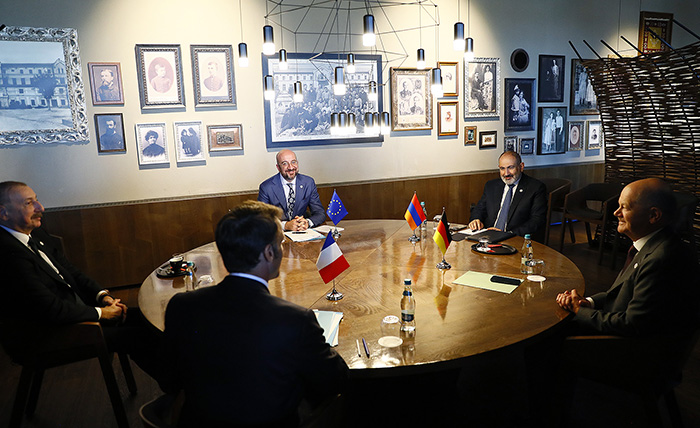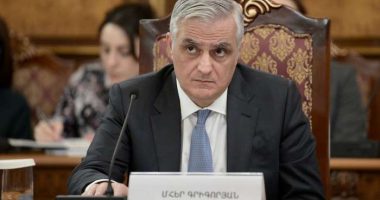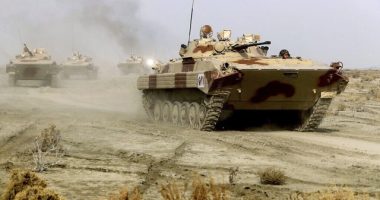By K. Khodanian
The Prime Minister of Armenia, Nikol Pashinyan, expressed concern about statements made by the President of Azerbaijan in recent days. Addressing the european mediators, the Prime Minister urged both Azerbaijan and the international partners to promptly clarify whether these statements imply a renunciation of the agreements reached in Brussels.
The pronouncements made by President Ilham Aliyev, setting new preconditions, were ignored by the international community despite their contradiction to the discussions during the May 14 tripartite meeting in Brussels between Pashinyan, Aliev, and European Council President Charles Michel. After that meeting, the President of the Council of Europe announced that both parties recognized each other’s territorial integrity and had discussed issues such as the lifting of the blockade on transportation and economic infrastructures, border demarcation, border security, and the regulation of relations between Armenia and Azerbaijan. The need to address the rights and safety of the people of Nagorno-Karabakh was also emphasized.
Regarding Nagorno-Karabakh, Charles Michel stated, “I urge Azerbaijan to actively engage in developing a positive agenda that ensures the security of Armenians, in close cooperation with the international community. I have also emphasized the necessity of transparent dialogue between the populations of Baku and Nagorno-Karabakh.”
In recent days, Aliyev made a series of remarks which show that he is not ready for peace. During his visit to Moscow, he once again brought up the topic of the “Zangezur Corridor,” which sparked a debate between the leaders of Armenia and Azerbaijan. Later, speaking in Lachin, he called for the dissolution of the Artsakh parliament and other governmental bodies and demanded the surrender of “the person who calls himself president,” referring to Artsakh President Arayik Haroutiounian. Aliyev also called for the withdrawal of the Armenian army from Nagorno-Karabakh, even though Armenia withdrew its forces from Nagorno-Karabakh after the war and only the Defense Army units of Artsakh are currently there. Aliyev even went as far as threatening military operations against Artsakh. Meanwhile, the Russian peacekeeping forces, which were deployed after the 44-day war with the agreement of both parties, continue to fail to fulfill their obligations in this regard.
Another meeting sponsored by Charles Michel took place this week. The leaders of Armenia and Azerbaijan, while participating in the European Summit in the Moldovan capital of Chisinau, held a new round of talks in the presence of French President Emmanuel Macron and German Prime Minister Olaf Scholz.
In a statement following the summit, the Elysée Palace said, “The European leaders called on Armenia and Azerbaijan to respect all their commitments,” urging the two neighboring nations to release prisoners of war and avoid “hostile rhetoric.” Additionally, Macron’s press service added that the three Western leaders “stressed the importance of defining rights and guarantees for the Armenians of Nagorno-Karabakh.”
While Aliyev’s speeches escalate, he simultaneously indicates that a peace agreement with Armenia will be signed soon. This way, Aliyev attempts to portray himself as a “peace-loving” leader to the Europeans. The time has come to dispel this illusion, and the Europeans have a responsibility to take practical steps, such as considering the termination of the gas contract signed between Baku and Europe, which provided Azerbaijan with a revenue of $15 billion last year alone.
The credibility of Charles Michel and other European players is at stake, and it is their responsibility to ensure that the dictator of Azerbaijan respects the agreements reached at the negotiating table.
“MASSIS”










